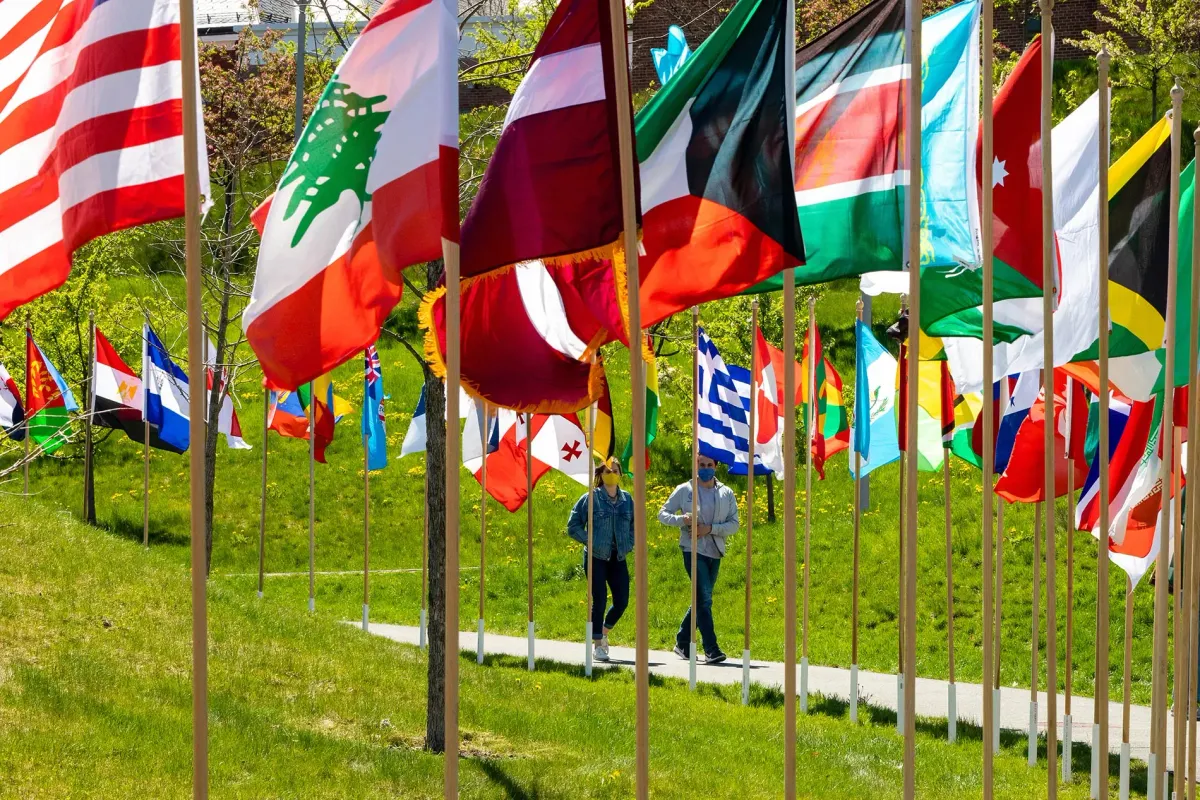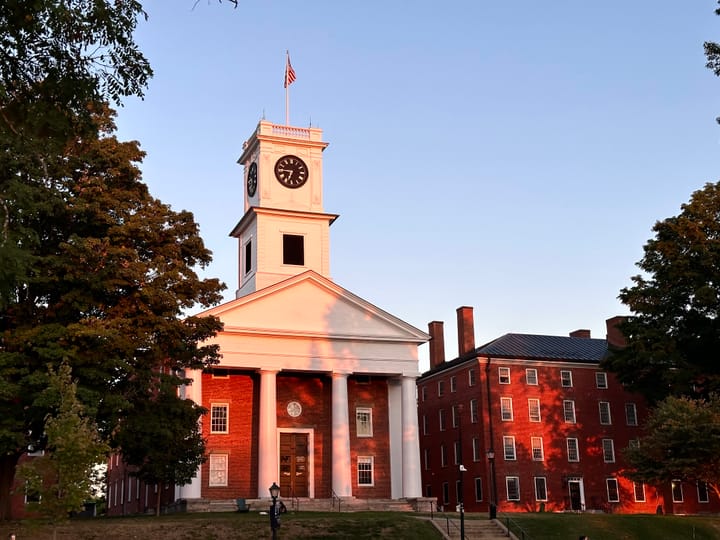College Hosts Panel on Implications of Trump’s Immigration Policies
Experts from inside and outside the college gathered to advise international students on the incoming changes to the immigration landscape under Trump.

The Office of Immigration Services collaborated with other campus groups to host the panel “Eye on Immigration” on Nov. 19, where attorneys and professors shed light on the potential legal, economic, and social implications of the incoming Trump administration's immigration policies.
The panel was well attended by an audience of Amherst students, faculty, and staff, and Five College community members.
Local attorney Dan Berger, who advises the college on immigration issues, opened the event by reflecting on changes in the U.S. immigration landscape over the past eight years. Executive orders preventing ease of immigration were especially prominent during Trump's first presidential term, Berger said.
Berger highlighted several policies, including Trump's “extreme vetting” executive order, the “Buy American, Hire American” executive order, the Muslim immigration ban, and other travel bans, all aimed at restricting the presence of immigrants in U.S. territory.
The panelists added that another important characteristic of Trump's first term was his administration's aggressive approach to carrying out deportations, which is increasing anxiety about the specific contexts where immigrants might be vulnerable. Berger suggested that similar trends could continue in Trump's second term.
Professor Caroline Theoharides, chair of the economics department, explained how the economy could be damaged by immigration restrictions.
“There are lots of things that economists disagree on. But one thing economists generally [agree] on is the extensive benefits to the economy from immigration," she said. "When we put restrictive policies in place, this has huge implications for slowing down the economy, has huge implications for inflation, et cetera.”
When asked about expectations for the coming months, the panelists expressed a strong sense of uncertainty, yet also emphasized the importance of students being prepared for changes to the immigration system.
Berger advised those with fragile immigration statuses to seek legal consultations if possible and to build a strong, supportive community. While he believes that mass deportations are not logistically possible, he predicted an increase in enforcement actions. Berger also expressed confidence that programs like Optional Practical Training and H-1B visas would remain available for international students and faculty. However, Berger said that “things will get harder and slower.”
The panelists emphasized the importance of carefully evaluating information sources and encouraged students to reach out with any questions on this topic.
“I would be careful about just reading things on social media. There’s a lot of stuff being talked about. I think it’s more important to focus on what happens rather than what might happen, because the range of what might happen is just tremendous,” Berger advised.
Berger also highlighted the importance of the international community being proactive and looking for information and guidance from the available resources at Amherst, whether while applying for some kind of authorization, trying to understand if international travel is safe, or worrying about a family member that might be affected by the new policies.
Professor Leah Schmalzbauer, chair of the American studies department, remained optimistic about resources for international students.
“Amherst has strengthened our structures of support. I think a lot of immigrant-serving organizations have done that in similar ways, too. So that’s a little glimmer of hope that we can take with us into the next four years as well,” Schmalzbauer said.
Linxi Cai ’27, an international student from China who attended the event, expressed concern about the current political situation in the United States.
“Since I’m a student who is from China, which is a country that is in a very tense relationship with America, it makes it worse because I am in a situation where I don’t know if I’m able to continue my studies,” Cai said. “It’s really difficult for me even to decide whether I want to go back to China or not to see my family, because I’m scared that once I go back, they won’t allow me to come back to the United States.”
Cai thought the event was helpful and found it reassuring to see the room filled with community members who are concerned about immigrants and the international members’ situation.
“I hope to see more events in the future, not just right after the election but also constantly going on since we know that this administration is going to go on for four years. We definitely need this constant support,” Cai said.





Comments ()